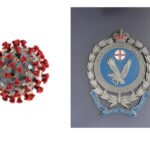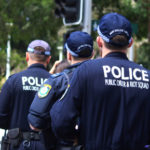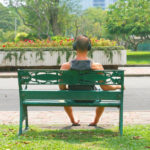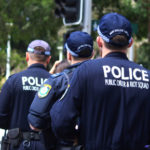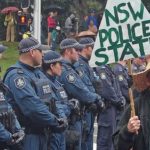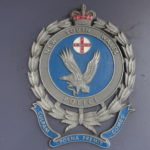Police Accused of Heavy-Handed Tactics Over House Party Raid
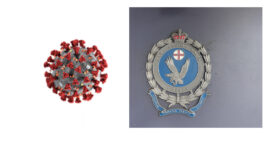
Up to 60 COVID-19 infringement notices, which come with an accompanying fine of $1,000 will be issued to people at a party in Schofields, west of Sydney.
At around 11.30pm on Saturday, 18 July 2020, police responded to noise complaints at a home believed to have been rented online. They say they found 60 people on site – a breach of the public gathering restrictions which dictate a maximum number of 20 people visiting a home at any one time.
Policing overkill?
Police from four area commands, Quakers Hill, Mt Druitt, Hawkesbury, Blacktown, The Hills and Nepean, as well as the Police airwing, PolAir, a team from the Dog Unit, and support officers from North West and South West Metropolitan Regions, were called in to manage the crowd.
Police say that many of the group were intoxicated and Police began using capsicum spray when a brawl started outside the home. Three men were taken to hospital – two for injuries and another man suffering the effects of alcohol.
Thirty people were arrested after refusing a move-on direction, and will be issued with separate infringement notices for failure to comply.
COVID-19 still threatens New South Wales
Just as we thought we could begin to relax, the outbreak at Crossroads Hotel at Casula, which has been linked to 48 cases has put the government, health authorities and NSW Police on high alert again.
Since then, other outbreaks have also occurred: 16 cases are linked to Thai Rock restaurant in Stockland Mall, Wetherill Park, eight with the Batemans Bay Soldiers Club, four overseas travellers in hotel quarantine, and one person who was infected in Victoria and entered New South Wales before border restrictions were in place. There are now fresh concerns of the possibility of another in Paddington after a person who tested positive for COVID-19 visited venues there over the weekend of July 11-12.
And, as we’ve seen from the experience of Victoria, the coronavirus can spread rapidly, and remain undetected as it does so.
NSW Restrictions could get worse
After months of being under stay at home directives and having our freedom of movement severely truncated, there are many people keen to catch up with friends and family, but New South Wales residents can’t do that just yet. And Premier Berejiklian has not ruled out the possibility of ‘lockdowns’ although the cost to the economy would be substantial.
The re-opening of the state was always going to be a precarious time, particularly since the virus is not dormant. Authorities have been warning for weeks that this is no time for complacency. The New South Wales Government is urging people not to undertake non-essential travel, to keep gatherings restricted, to adhere to social distancing practices and practice good hygiene. And of course, to stay home if they are feeling unwell.
Police have also issued several public warnings that they will be issuing fines to anyone who breaches the public health directives. NSW Police Commissioner Mick Fuller recently said police will be “issuing tickets over using discretion.”
Police guidelines for issuing fines.
New South Wales police have received a great deal of criticism for the haphazard way they have policed COVID-19 ‘breaches’ with examples of people being fined for sitting in cars alone, or eating alone in a public place, despite the fact that internal fact sheets, obtained under Freedom of Information laws, determined that officers “should not stop and question people who appear to be going about their business alone, in groups of two or as family units. And should not stop vehicles just to check occupants’ compliance with these directions.”
Furthermore, the internal fact sheets explain that: “A family having a sandwich in the park after a walk, for example, would not warrant the same police response as a group of rowdy teenagers eating and socialising in the park,” sparking concerns that guidelines were not followed in many cases when police issued fines.
New South Wales Police have also stated that that nature of the virus and changing circumstances meant police were acting under new legislation and orders that were regularly being updated according to the evolving crisis, and that “accordingly, it is very appropriate for police to seek clarification on specific circumstances to ensure the correct enforcement action is taken.”
It is important to know that under the guidelines, Police can direct someone to provide their name and address under the Public Health Act and can perform an arrest under law enforcement powers legislation if the person refused, but only as a last resort.


